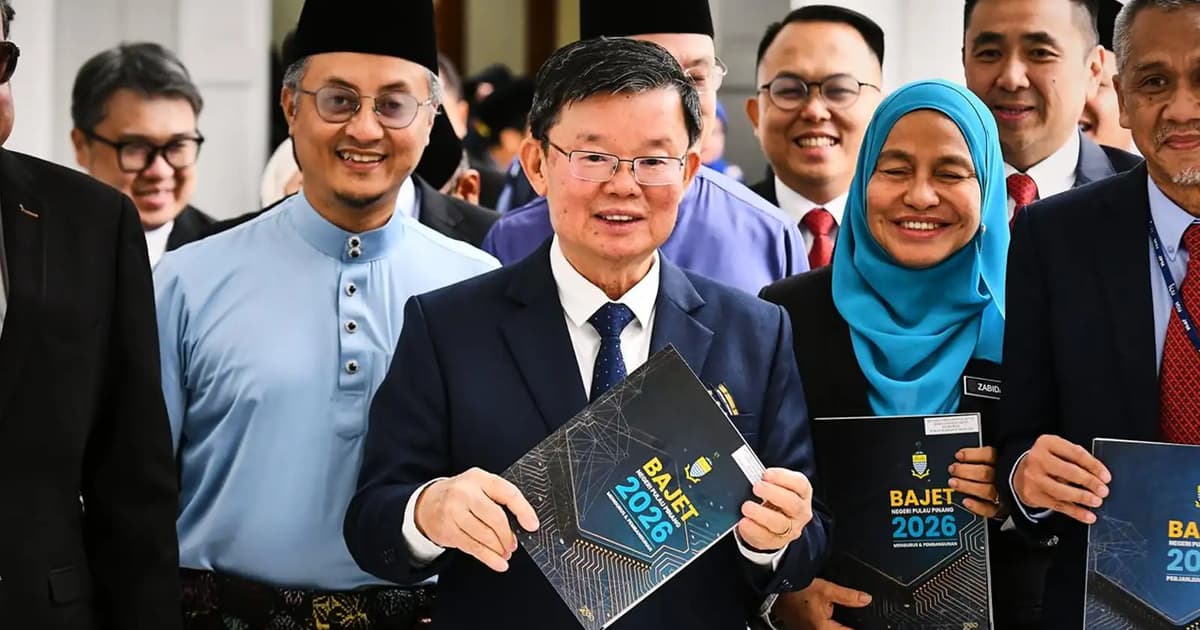
The Penang government has tabled a RM1.088 billion budget for 2026, its lowest deficit budget to date.
Chief minister Chow Kon Yeow said next year’s budget, which is RM147 million higher than this year’s allocation of RM940.22 million, will see a historic low deficit of RM19.92 million after taking into account projected state revenue of RM1.068 billion.
He said the state government has recorded RM916.25 million in revenue collection for this year so far, exceeding the initial target of RM906.59 million.
“The state government is optimistic it can achieve a collection of more than a billion ringgit in total revenue before the year’s end, last achieved in 2016 when it recorded RM1.029 billion in revenue,” he said when tabling the supply bill in the state assembly today.
Chow announced a minimum of RM1,000, or three-quarters of the monthly salary, in one-off special financial aid (BKK) for all 3,954 civil servants in the state.
He also announced a one-off RM300 incentive for 3,358 teachers and staff in Kafa (al-Quran and Fardu Ain) classes, religious schools, and Chinese independent schools.
The state government will incur RM11.49 million in expenses rolling out the BKK payments and one-off incentives from next month.
Focus on high-impact projects
Chow said the state government will focus on high-impact projects next year, including land acquisition for the Mutiara Line LRT project, the Gurney Bay Phase 2 project, the Silicon Island development, and connectivity projects under the Penang Transport Master Plan.
He said more than 101ha have been reclaimed for the Silicon Island reclamation project so far.
The project sites for an LRT depot, Indah Water Konsortium treatment plant, and a section of the Green Tech Park industrial area are also being prepared and expected to be ready for sale and development by the end of this year and the first quarter of next year.
In addition, the sites for the state’s affordable housing project, a mosque, the Heart of The Island project, and the state government’s administrative centre will be ready between the fourth quarter of 2026 and 2030.






